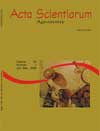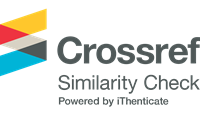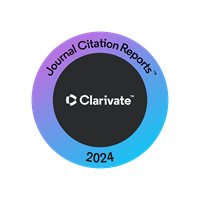<b>Tolerance to precocious flowering and commerical traits of F<sub>4</sub> progenies of hybrid Regina 71 x Salinas 88 lettuce</b> - DOI: 10.4025/actasciagron.v31i1.6607
Keywords:
Lactuta sativa L., heat tolerance, butterhead
Abstract
The lettuce is a plant that features great variability in form, color and texture. The butterleaf variety had remained one of the most consumed lettuce types. The evaluation of leaf type for commercial characters is essential for the development of any improvement program, especially when the parents are divergent types. Furthermore, most cultivars are susceptible to heat. Thus, the objective of the present work was to evaluate F4 progenies of butterleaf lettuce, aiming to select new genotypes for nematode resistance, tolerance to heat and LMV. Twenty-two F3:4 progenies were originated from crosses involving the ‘Regina 71’ and ‘Salinas 88’ cultivars, previously selected for heat tolerance, nematode resistance and LMV (lettuce mosaic virus). The experiment was carried out in a randomized block design, with four replications. The limb, edge, head formation and the number of days until flowering were evaluated. Among the 22 evaluated progenies, three are butterleaf and may lead to new lettuce lines resistant to root-knot nematodes, heat and LMV.Downloads
Download data is not yet available.
Published
2009-03-19
How to Cite
Carvalho Filho, J. L. S. de, Gomes, L. A. A., & Maluf, W. R. (2009). <b>Tolerance to precocious flowering and commerical traits of F<sub>4</sub> progenies of hybrid Regina 71 x Salinas 88 lettuce</b> - DOI: 10.4025/actasciagron.v31i1.6607. Acta Scientiarum. Agronomy, 31(1), 37-42. https://doi.org/10.4025/actasciagron.v31i1.6607
Issue
Section
Genetics and Plant Breeding
DECLARATION OF ORIGINALITY AND COPYRIGHTS
I Declare that current article is original and has not been submitted for publication, in part or in whole, to any other national or international journal.
The copyrights belong exclusively to the authors. Published content is licensed under Creative Commons Attribution 4.0 (CC BY 4.0) guidelines, which allows sharing (copy and distribution of the material in any medium or format) and adaptation (remix, transform, and build upon the material) for any purpose, even commercially, under the terms of attribution.
2.0
2019CiteScore
60th percentile
Powered by 

2.0
2019CiteScore
60th percentile
Powered by 




















































